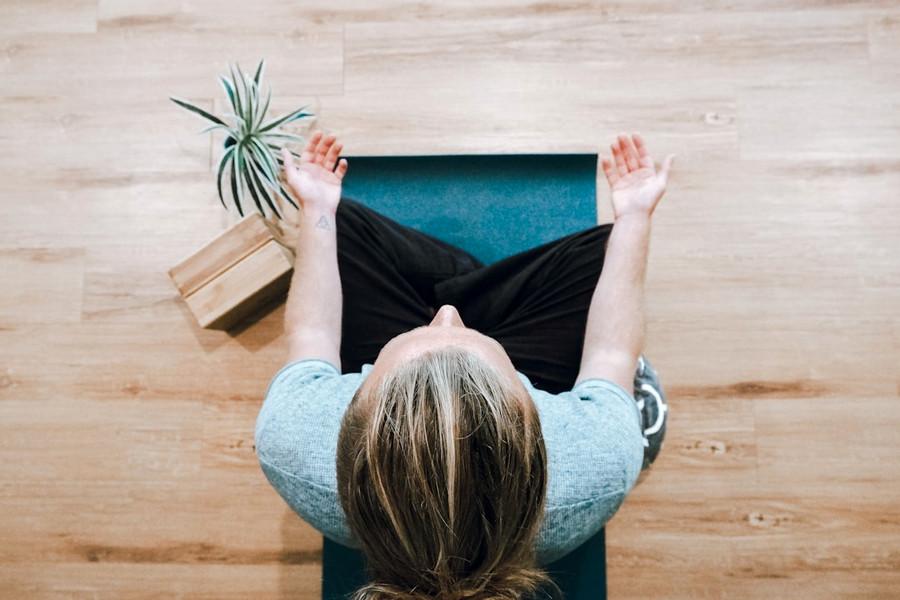Explore the World's Best Ideas
Join today and uncover 100+ curated journeys from 50+ topics. Unlock access to our mobile app with extensive features.
Insomnia Is Awful, But Treatable
- Securing good sleep is essential for physical and mental health.
- Most adults need between seven and nine hours of sleep to feel sufficiently rested, though the exact duration needed vary from person to person.
- Insomnia can have a serious impact on a person's quality of life and day-to-day functioning.
- It can affect performance at work, relationships, and motivation to exercise and keep a healthy diet.
- People with insomnia often stop doing the things they enjoy as they no longer have the energy or drive to do them.
12
90 reads
The Solution To Insomnia
- Identify behaviors that could be fuelling your insomnia.
- One of the main culprits behind insomnia tends to be going to bed early in an attempt to give yourself more opportunity for sleep.
- Drinking coffee or consuming other forms of caffeine in the afternoon or evening poses a risk to sleep.
12
85 reads
The Myth Of Drinking Alcohol To Get Good Sleep
Another strategy that people sometimes turn to when they are desperate for a good night's sleep is drinking alcohol.
Sleep myth: it helps you to sleep.
Sleep truth: it might help you fall asleep more quickly, but it wreaks havoc on your sleep quality as the sleep you get is less restorative, your heart is working harder, and you're more likely to wake up in the night and have fragmented sleep.
12
72 reads
How To Sleep Well Again: The Winding Down Routine
Have a 60- to 90-minute winding down routine before you go to bed every night. This means doing things to help your body and mind feel relaxed and calm, and avoiding anything that overly stimulates the brain. Reading, light exercise, meditation, listening to relaxing music, having a bath, and self-care routines can all help. Avoid checking work emails, turn off notifications, don’t start planning or strategising, no gaming or social media. Think: gentle, relaxing, calm.
15
75 reads
Better Sleep: Tips And Tricks
- Make your bedroom a sleep sanctuary: get the best bedding and mattress you can afford, make sure it’s dark, use ear plugs if it’s noisy, and keep the temperature pretty cool.
- If you wake up at night, do not check the time.
- Stay hydrated during the day and avoid consuming too much liquid just before bed.
- Get up at the same time every morning, even on non-working days. This will strengthen your body clock.
- Get outside and soak up the daylight as much as possible, especially in the morning. Even if it’s overcast. If you can’t get outside, sitting by a window is the next best thing.
13
71 reads
Stimulus Control
Stimulus control is all about keeping your bed and bedroom for sleep (and intimacy) only. If you have insomnia, that ideally means no eating, reading, working, watching TV, gaming, online banking, to-do lists and so on when you’re in your bedroom. This is because we want your brain to form a strong association between your bedroom environment and sleep.
12
68 reads
What To Do If Your Mind Keeps You Awake
- Notice: what are my thoughts about sleep right now? How true do they feel?
- Spot the trigger: what is happening right now that might be causing me to think this way?
- Practise self-compassion: it’s understandable that my sleep problems would make me think this way.
- Step back and question: am I willing to be wrong about this? Is there another way of looking at this?
- Rebalance: what’s the actual evidence for this? When I’m feeling less tired/stressed/fed up, how would I be thinking about this?
- Recognise your needs: what can I do for myself right now to feel a little better?
12
55 reads
Write Down Your Jumbled Up Thoughts In A Notepad
Lots of people struggle with racing thoughts, where, as soon as they wake up, their brain suddenly switches on and their head is full of things they need to do, worries, memories and so on.
A strategy that can reduce the impact this has on your sleep is the ‘brain dump’ exercise – you might want to try doing this at least an hour or so before bedtime.
Jot down everything that is swimming around in your thoughts. The idea is that getting it out of your head and onto something physical, like a notepad, can help to ‘declutter’ the brain, and can even give you new insights and perspectives.
11
45 reads
Progressive Muscle Relaxation
Progressive muscle relaxation is a great way to help the body relax.
It’s a simple technique that you can practise when you first get into bed. Here’s how to do it:
- Get yourself into a comfortable position in your bed.
- Close your eyes and breathe calmly for about 30 seconds.
- While continuing to breathe calmly, imagine slowly scanning your body from the top of your head down to your toes.
- When you find some tension in your muscles, focus your attention on that muscle group
- Repeat this with the same muscle group, then continue your body scan, and move on to another muscle group.
12
51 reads
Getting Help From The Therapist
Cognitive behavioral therapy for insomnia (CBT-I) is usually provided by clinical psychologists and cognitive behavioral therapists, as they have the necessary skills and knowledge to help facilitate change
CBT-I helps deal with the root cause of the issue and the factors that are making it worse, rather than just managing the symptoms
Make sure to ask about the therapist's credentials and any specialist training they have in sleep and about their experience and successes in treating insomnia
12
43 reads
IDEAS CURATED BY
CURATOR'S NOTE
Sweet dreams.
“
Omar King's ideas are part of this journey:
Learn more about health with this collection
How to delegate tasks efficiently
How to use technology to your advantage
How to optimize your work environment
Related collections
Similar ideas
6 ideas
Cognitive Behavioral Therapy for Insomnia (CBT-I) | Sleep Foundation
sleepfoundation.org
4 ideas
Read & Learn
20x Faster
without
deepstash
with
deepstash
with
deepstash
Personalized microlearning
—
100+ Learning Journeys
—
Access to 200,000+ ideas
—
Access to the mobile app
—
Unlimited idea saving
—
—
Unlimited history
—
—
Unlimited listening to ideas
—
—
Downloading & offline access
—
—
Supercharge your mind with one idea per day
Enter your email and spend 1 minute every day to learn something new.
I agree to receive email updates









